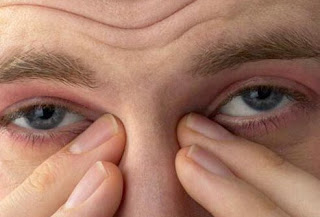LASIK Eye Surgery: Better Vision with Laser Surgery
What Is Laser Vision Surgery?
Excimer laser refractive surgery, commonly known as laser vision correction, has been around for the past 20 years. This procedure is performed to reduce or eliminate the need for glasses or contact lenses. If you are considering laser vision correction, you need to know what it is, what to expect, and what the benefits, risks, and alternatives are.
Excimer laser refractive surgery, commonly known as laser vision correction, has been around for the past 20 years. This procedure is performed to reduce or eliminate the need for glasses or contact lenses. If you are considering laser vision correction, you need to know what it is, what to expect, and what the benefits, risks, and alternatives are.
Good Candidates for Vision Surgery
Laser vision surgery is designed to help individuals who are myopic (nearsighted), hyperopic (farsighted), or/and have astigmatism, which is an irregularity in the surface of the front of the eye, the cornea.
Laser vision surgery is not for everyone. You are a candidate for this procedure if:
- You are over the age of 18 years old.
- You wish to reduce or eliminate the need for contact lenses or glasses.
- Your vision has been stable for at least a year
- There are no ocular or medical contraindications to the surgery.
- Your profession/job/vocation does not prevent you from having this procedure.
Cautions for Vision Surgery
Certain medical problems that may affect healing could make you a poor candidate for laser vision correction. Conditions such as collagen vascular diseases, lupus, rheumatoid arthritis, and HIV-associated diseases may influence proper wound healing, which is necessary to achieve a good result.
Certain eye conditions such as dry eyes, Sjögren's syndrome, irregular astigmatism, large pupillary size, thin corneas, or keratoconus may also make this procedure inappropriate for you.
You May Still Need Glasses
Laser vision correction is designed to reduce or eliminate your need for glasses and contact lenses. Although many patients are able to function well without any glasses or contact lenses, some still require optical correction for certain tasks. In addition, laser vision correction does not change the condition known as presbyopia, which is the expected difficulty with close work as one reaches the age of 40 or older. Monovision laser procedures, which involve having one eye corrected for distance and the other for seeing up close, are an option to reduce the effects of presbyopia.
How LASIK Works
LASIK is the name for the most commonly performed refractive laser procedure. It involves making a very thin flap in the cornea, folding it back on its own hinge, and then an excimer laser is used to vaporize a small amount of corneal tissue. The flap is then placed back into position.
Wavefront-Guided LASIK
Like other technologies, LASIK and other refractive laser procedures continue to improve. There are now ways to customize the application of excimer laser removal of corneal tissue to each patient's eyes, making visual results better and more predictable, with fewer visual side effects.
PRK, Epi-LASIK, and LASEK
Photo-refractive keratectomy (PRK), involves the use of the excimer laser on the cornea without making a LASIK flap. This technology preceded LASIK and was replaced by LASIK, for the most part, but it has now re-emerged as a more favorable choice for patients with thinner corneas or pre-existing dry eyes.
Strong Rx: Implantable Lenses
There are some patients whose myopia (nearsightedness) is so great, that laser refractive surgery cannot correct their vision without significantly thinning the cornea. For those people, a possible choice could be an artificial lens that is inserted into the front of the iris by means of a small incision. These plastic lenses have been FDA approved for the treatment of high myopia. There are risks to this surgery, including loss of vision.
Risks of Laser Eye Surgery
You must remember that elective laser vision correction is indeed surgery and should not be undertaken lightly. Both LASIK and PRK have the possibility of causing temporary or permanent damage to the eye, including double vision, streaking of vision, haloes around light, increased sensitivity to bright lights, glare, dry eyes, continued need for glasses or contact lenses, and rarely, loss of vision.
How to Choose an Eye Surgeon
When choosing an ophthalmologist to consult with regarding laser refractive surgery, do some research. This is an important decision and your choice should involve more than the factor of price alone. Personal recommendations, experience, and actual results are far more important than seeing advertisements on TV or in printed media.
What to Expect During Eye Surgery
Refractive laser surgery itself takes about 30 minutes. Pre-operative evaluation is extremely important and this will be performed prior to your surgical session. The results from the tests done before surgery will be used to make the correct intraoperative decisions. The eye(s) will be numbed with some drops and you will be lying on an operating table for the procedure. Both eyes are usually operated on the same day. You will be given instructions after the surgery and told to use certain eye drops to promote healing.
Preparing for Surgery
Pre-operatively, your ophthalmologist may want you to use eye drops to reduce dry eye or inflammation. You will also be given instructions about when to discontinue wearing contact lenses and when to stop applying facial lotions and creams.
Early Recovery From Surgery
Your ophthalmologist will want to see you 1 or 2 days after surgery. You will be given instructions as to when you may drive and what activities to avoid. After surgery, you may have mild pain or discomfort, a foreign body sensation in one or both eyes, hour-to-hour fluctuations of your vision, and some visual haze, together with tearing of the eyes.
Full Recovery Timeline
There may be fluctuations in your vision for as long as 6 months after surgery. Specifically, you may have symptoms of glare, rings around lights, light sensitivity, and difficulty with night driving. In addition, you may experience a feeling of dryness in your eyes. Your ophthalmologist will examine you during this period of time. Be sure you express your concerns and ask questions.
How Effective Is LASIK?
The success rate for refractive laser vision correction is high, both with LASIK and PRK. More than 95% of nearsighted patients achieve uncorrected visual acuity of 20/40 or better. One or two out of 10 patients will require a second surgery, known as an “enhancement.” The risk of needing a second procedure is lower for people with smaller amounts of pre-operative refractive error.
Dry eye symptoms affect about 20% of patients after laser vision correction. This may be permanent and require the use of lubricating drops or other medications.
Uncommonly, there can be visual loss or corneal ectasia, which is a weakening of a cornea that is relatively thinner than it was prior to surgery.
Are you unable to see the open world due to your eye problems, if yes, then come to Indore India Eye Care Hospital in Indore, because Indore India Eye Care Hospital is the best eyes hospital in Indore, All eye related diseases are treated here at very low cost. Dr. Birendra Jha is an experienced Cataract surgeon of this hospital. Dr. Birendra Jha provides Glaucoma, Cataract Surgery, Squint/ (तिरछापन)/ Eye Deviation, Pediatric Ophthalmology, No Touch Lasik & Refrective Surgery and Orbit and Oculoplasty Services. Book an Appointment today call us 9977141260, visit on online website - http://www.indoreindiaeyecare.com/
Request an Appointment / General Inquiry:- https://www.indoreindiaeyecare.com/contact-us.html
Please go through our social media :
like our page to know more about eyes
Facebook :- https://www.facebook.com/eyeclinicsinIndore/
Please do follow on Instagram
Instagram :- https://www.instagram.com/indoreindiaeyecare_/
To More Post: - Glaucoma and its risk factors




Comments
Post a Comment